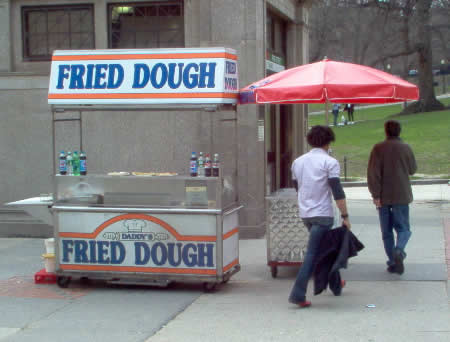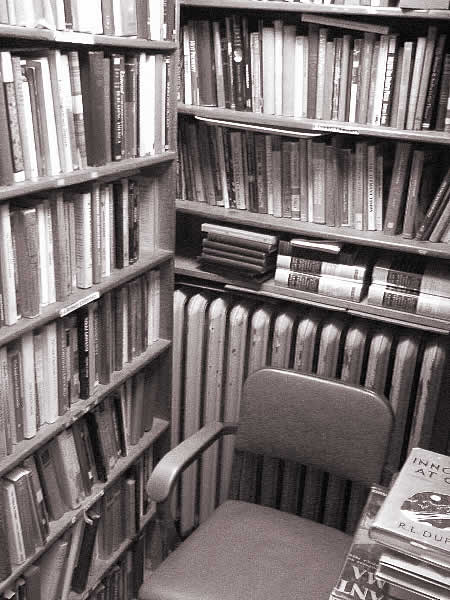Here are my notes from the Dalai Lama’s appearance at Accordion City’s SkyDome on Sunday, April 25th. I took them with pen and paper and transcribed them here.
Anything in quotation marks is a direct quote of the speaker. I’m basically following the rules of “citizen journalism”, which Lisa Williams explains very eloquently in this post on her blog. Fortunately for me, the Dalai Lama’s English is very close to note form.
Media reports on the event:
- Tibetan peace riders greet Dalai Lama in Toronto
Times of Tibet, Tibet - Dalai Lama Thrills 29000 in TO – Toronto Star
- Dalai Lama wows them at SkyDome – The Globe and Mail
- Skydome packed for Dalai Lama – London Free Press
Opener: Bill Cameron
- Greetings to all 25,000 in attendance
- So many different ages and races in the audience
- SkyDome is normally a place of struggle and competition (“Nothing wrong with that…especially when the Blue Jays are winning”)
- But today, it’s about peace, harmony and compassion
- In my industry [television], one of the greatest fears is silence, or what is called “dead air”
- managers try and fill dead air with voices, musics, blaring sirens and horns
- Let’s take a moment to enjoy that silence — the silence of 25,000 people together in harmony, and let’s call it “live air”
- Introduction of Tibetan Institute of Performing Arts troupe performing a “Luck Dance”
- Dance appeared to 5th Dalai Lama in a dream
- Short film: Tibet’s Stolen Child
- About the 11th Panchen Lama: kidnapped by Chinese government in 1989, still under house arrest today
- His birthday is today
- Chinese gov’t have produced their own Panchen Lama, who is their puppet
- Narrated by the unmistakeable voice of Patrick Stewart
- Speakers in the film:
- Desmond Tutu: “Freedom is cheaper than oppression”
- Elie Wiesel: “A tragedy…an insult to human decency”
- 1996 Nobel Peace Prize winner Jose Ramos-Horta
- 1998 Nobel Peace Prize winner John Hume
- Australian senator Vicki Bourne
- For more information, visit www.tashilhunpo.org
Introduction: Justin Trudeau
(Justin Trudeau is the eldest son of former prime minister Pierre Elliott Trudeau. He gained some fame and admiration in 2000 for his very moving “Je t’aime, Papa” eulogy at his father’s funeral. Depending on whom you ask, Pierre Trudeau is the symbol of what’s right or what’s wrong with Canada.)
- The Dalai Lama is “someone who knows how to get along just fine…with just about everyone.”
- Sometimes hard to define words like “compassion” or “love” — esp. when we say things like “I love my shampoo” or when “freedom” means a new convertible — “or an SUV if you live in the Himalayas.”
- Canada is a country of optimists, hope, compassion and acceptance
- “We’re just not as good at it as he is.”
Presentation: The Dalai Lama
- “We are same”
- We have equal potential for good and for bad
- “No one one hundred percent bad.”
- Education is important: “Not just for mere knowledge, but something good for happier life.”
- Pointed out that education does not guarantee happiness
- Believes in promotion of human values and religious harmony
- “If you come here with great expectation, I have nothing to offer you. Just empty words.”
- Spent majority of his life in exile
- “Very lazy student”: When it comes to math, geography and world history, “my knowledge is almost zero”
- Compassion: “Some kind of closeness felling, sense of concern, with respect”
- From compassion comes “truthful”, which leads to self-confidence, which in turn leads to hope
- Peace: “Not just the mere absence of violence” — “Peace is the expression of compassion”
- We learn compassion from the start with a mother’s love (and the love of those who care for us when we are young and helpless)
- World is heavily interconnected today because of our population growth, technology and economy
- “We and they no longer there: we are part of they, and they a part of we.”
- Much of today’s violence has causes that go back to the 18th, 19th and 20th centuries
- Violence creates more hatred in the other’s mind
- War: “I usually feel like legalized violence”
- War is different today: “Destruction of your enemy is destruction of yourself.”
- “The best way is to dialogue.”
- 20th century became “century of violence” — “21st century should be century of dialogue”
- Compassion:
- “bring us self-confidence”
- “bring us respect of others”
- “bring us peaceful calm mind
- “I think you feel that sometimes our leaders should have more compassion” (applause)
- Storyabout politician friend in India who said: “I am a politician, and as apolitician, I don’t know much about spirituality and ethics.”
- “Leaders…politicians…in the mind, something happen. [Points to head] It’s dangerous!” (laughter)
- Suggestions that world leaders get together for a large gathering with their families and not discuss politics. Just get to know each other and each other’s families. Develop compassion for each other.
- Story about how he used to fight with his older brothewr as a child: compassion overcomes differences.
- Compassion not just a religious matter: “So long as we are human being…these deeper values are very necessary”
- Material developments are necessary, but must be “combined with human value”
- The term “secular”: “Not rejection of religion, but respect all religion and respect non-believer”
- Encouraged audience to think about compassion and human values: “Use this [points to head] as your laboratory…not expensive! Nobody pay!”
- “If you think my points are nonsense, then forget it, no problem.”
Q&A session
What is the biggest problem facing humanity today?
- Population explosion, especially in the 3rd world
- Gap between rich and poor
- Recalling visit to Washington DC: even in the capital of the world’s richest nation, there are poor
- India’s real transformation must take place not in its cities, but in the rural areas
Why does it seem that there is more negativity than positivity in the world today?
- “I do not agree world becoming more problem”
- “You just seeing locally”
- “Rule of kindness and compassion stronger”
- “If we really ruthless and not care, we would not have population problem”
- Story about German physicist friend
- Teaches him quantum mechanics: “I have keen interest in quantum physics”, but “great teacher, hopeless student”
- Physicist related how earlier, France was consider the enemy, now “just a neighbour”
- We look at war differently now — then, more people did not question; now, we ask if it’s necessary and if we don’t belive so, we protest, worldwide
- We are more concerned about the environment than ever
- All are signs that there is hope for us as a species
Along with compassion, what other qualities do we need?
- Knowledge: to see more clearly, to see past appearances
- “Hatred must have some kind of independent object to hate”, and the target is often chosen based on appearances
- “Compassion need no specific target”, and based on reality, which can only be perceived through knowledge
Where do you get all your energy?
- “Good sleep — sometimes 7 hours…sometimes 9 hours, 10 hours…”
- Heavy breakfast after fasting
- His peace of mind also a source of energy
- “Sometimes I feel like ocean. Waves come on surface [makes wave-like motion with hand] but underneath is calm.”
How can we help you to go home?
- “Buy one ticket from here to Peking, from Peking to Lhasa.” [laughter]
- “But then, the reality more complicated.” [laughter]
- “For last 45 years, my physical outside Tibet, but people in Tibet recognize my presence outside useful to them.”
- Does not believe in disintegration of China, nor separation of Tibet from China
- “Tibetan, Chinese,” people of all countries, “there is no difference”
- Instead, favours Tibet staying in China and having “meaningful implementation of autonomy” — “it is already provided for in Chinese constitution” — what’s good for Tibet will also benefit autonomous regions like Taiwan
- Today, China changing compared 20 years ago: “Judging from brader picture, there is hope”
- China is going through a transition period, and “smooth transition good for everyone.”










